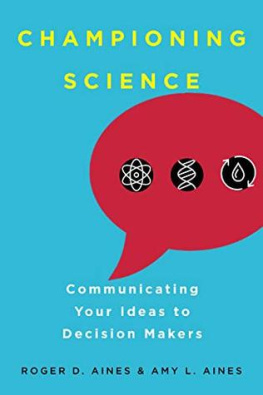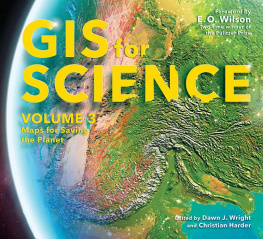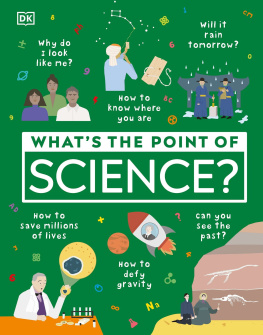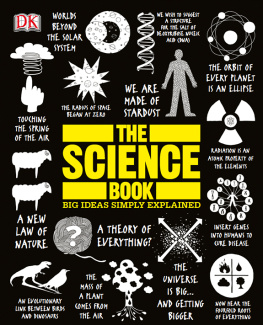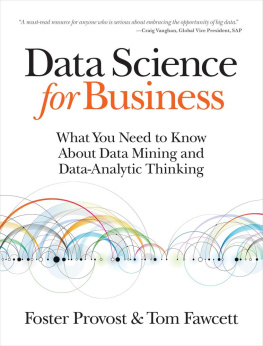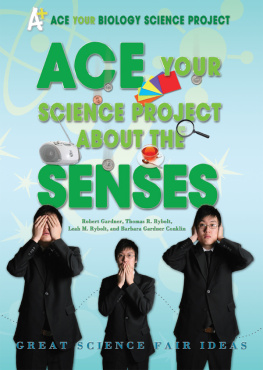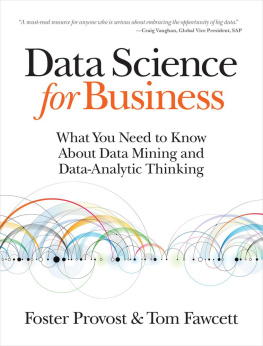Preface
Scientists are great communicatorswith other scientists. We are schooled in the exacting art of talking to our professors and colleagues, people deeply steeped in both the importance and the nuance of our topic. We can talk about the incredible details of modern science in an efficient way, condensing complex arguments into short discourses. But once we go out beyond the academic world to make an impact, scientists from every discipline face a brand new challengecommunicating science to decision makers.
Decisions about which scientific endeavors are advanced and how they are pursued usually get made by people who are not experts in the field. Corporate chief technology officers, elected officials, government program managers, venture capitalists, heads of nongovernmental agencies, and, often, senior management have the power to award funding and support new discoveries. These decision makers are well educated, hardworking, sincere, and extremely busy. Over the course of a day, they may be expected to make important decisions on topics spanning a myriad of unrelated fields. It is incumbent on us as scientists to quickly and effectively make our case. We must learn to talk about our work in succinct and compelling ways that convince the people who are pivotal to our success to take action.
From my work as a scientist and a manager of large-scale projects at a major national laboratory, I am acutely aware that most scientists could use a crash course on how to champion their science. Amy has dedicated her career to teaching corporate executives how to communicate effectively with their employees, investors, customers, and the public. Shes helped her share of scientists and technologists create powerful messages and layer technical information in a compelling, understandable, and actionable way. Her motto is Words Matter. When I met her, I realized that she would be the perfect coauthor (we ultimately married, but that is a different story!).
Throughout this book, I offer the perspective of a scientist. Amy provides the nuts and bolts of how to improve communication. You will quickly note the juxtaposition of her clear and direct style with my more baroque inclinations. The collaboration brings our distinctly different experience and interests to bear as we give stories and examples from our respective careers. We share the belief that it is now more important than ever for scientists to become better communicators.
The Internet has introduced a new challenge for talking about science. In a world where simply saying something online has impactwhether its true or notscientists compete not only with other science and other belief systems but also with deliberate falsification. We must convince decision makers that the information we are providing is both important and correct. They must trust us. This gets complicated when decision makers are overwhelmed with information from multiple sources and cant begin to parse what they should believe. The what you should eat to be healthy problem in the popular press is a dramatic example. Scientists eager to get their research into the public eye make limited or even flawed studies seem to carry the same weight as multiyear studies with thousands of participants. The public only sees that scientists seem to say different things on different days. And so, rather than try to work out what is right or wrong, people often make decisions based on what fits their worldview. Investing the time to shape that view of the world and build a trusted relationship is central to becoming a champion for your science.
To convince todays decision makers, you have to establish your credibility and make the case for why the problem you are addressing matters before you can talk about the opportunity and ask for support. Constructing and presenting your case must be done masterfully and efficiently. During our research for this book, we interviewed people who can help you do this by providing their voice of experience and examples of effective science communication. Relevant excerpts of these interviews are woven throughout the book. The full interviews can be found at www.championingscience.com.
Amy and I wrote this book to teach science students and professionals how to use words and visuals to compel action. We want to arm scientists with proven techniques for communicating more powerfully so they can continue to change the world for the better.
Roger Aines
Livermore, California
Acknowledgments
We are beholden to Steve Bohlen, Jay Davis, Nancy Floyd, Dick Friedman, Julio Friedmann, Rob Socolow, Josh White, Bill Young, and several Washington sources who chose to remain unnamed but agreed to be interviewed. Their real-world experience and advice provides invaluable perspective to our readers and brings this book to life. We also appreciate the input we received from Matt Stepp and Megan Nicholson, formerly at the Center for Clean Energy Innovation, who we met with early on and who provided insight into how science policy is influenced.
Roger could not have cowritten this book without the decades of experience that Lawrence Livermore National Laboratory and the U.S. Department of Energy heaped upon him. He is grateful for the excellent images and visual examples provided by Josh White, Josh Stolaroff, and Congwang Ye and appreciates the many colleagues who encouraged this aspiration, including Tarabay Antoun, Jeff Roberts, and Doug Rotman.

